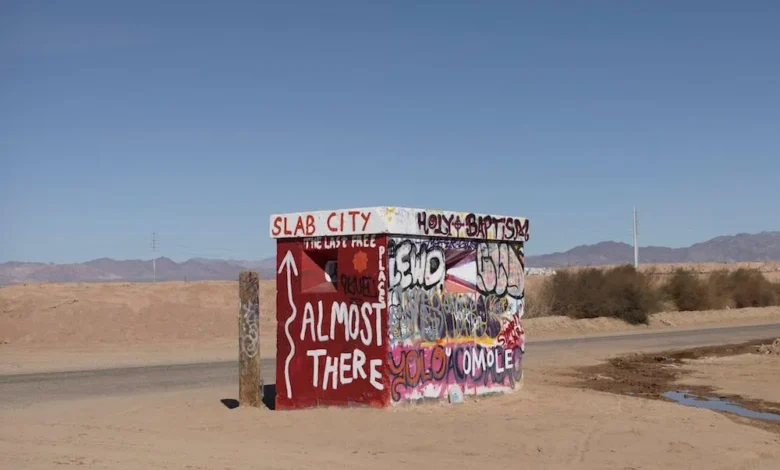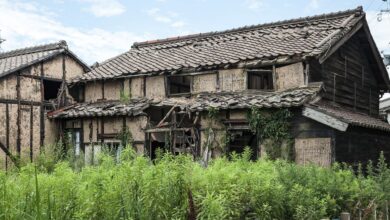Explore life in Slab City, where there are no laws and no taxes
Louisiana Filmmaker Explores the Unconventional Lifestyle, Legal Quandaries, and Advocacy Efforts in Slab City as Residents Strive to Preserve Their Autonomous Haven

Slab City, a unique community, caught the attention of Louisiana filmmaker Ranger Rick, who spent 14 days there. The area, lacking basic amenities like water, gas, and electricity, operates without formal laws and minimal government involvement. Originally a World War II training ground, it transformed into a settlement after its demolition in 1956, attracting wanderers and ex-servicemen. In this lawless environment, inhabitants live without clocks, TVs, and calendars, disconnected from the external world, fostering an unconventional lifestyle.
The community is named after the concrete slabs left when the Marine Corps abandoned the camp, originally known as Camp Dunlap. Despite its unconventional nature, the state of California owns the land, and residents are considered squatters. This designation implies that the state can repurpose the land. Reports suggest California may sell the land, potentially for energy projects like a solar farm.
Residents are actively advocating to buy the land to protect their community. However, critics fear this could create a landlord-like situation, contradicting Slab City’s core principles. This potential conflict highlights the delicate balance between preserving the community’s autonomy and addressing legal ownership.
Amidst this legal uncertainty, Slab City remains an intriguing place to visit. Its artistic homes and gardens, along with the renowned Salvation Mountain, make it a standout destination. However, the future of Slab City hangs in the balance as it navigates legal challenges and potential transformation.
Slab City’s origin as a military training ground during World War II adds historical significance to its unconventional present. After the Marines left in 1956, the community emerged organically, with residents shaping its character. The absence of formal legal constraints allows for a unique way of life, where individuals are free to express themselves, even in ways prohibited elsewhere.
Living without the constraints of time and modern gadgets, Slab City residents have created a distinctive environment. This lack of regulation may attract those seeking freedom from societal norms, but it also raises questions about the potential for activities that might be restricted elsewhere.
The designation of residents as squatters underscores the legal complexity of Slab City. While California owns the land, the community’s informal governance challenges traditional concepts of property ownership. Reports of the state considering selling the land introduce an element of uncertainty, potentially reshaping the community’s future.
The residents’ desire to purchase the land reflects a deep connection to their unique way of life. However, the prospect of becoming landowners raises concerns about a shift in dynamics, potentially compromising the community’s original principles. Balancing the preservation of Slab City’s distinctiveness with legal ownership issues remains a central challenge.
As Slab City navigates these challenges, it continues to attract visitors with its unconventional charm. The artistic homes and gardens, coupled with the iconic Salvation Mountain, make it a fascinating destination. Whether the community can maintain its autonomy in the face of potential land sales and legal disputes remains to be seen.
You might also be intersted in – California to ban Skittles and 12,000 other cancer-causing products



